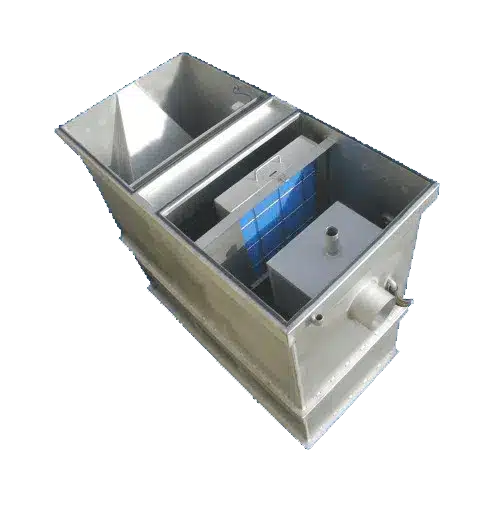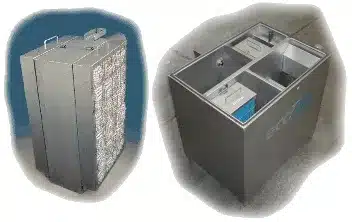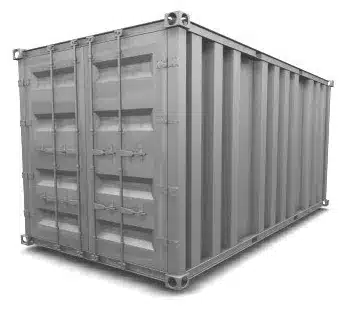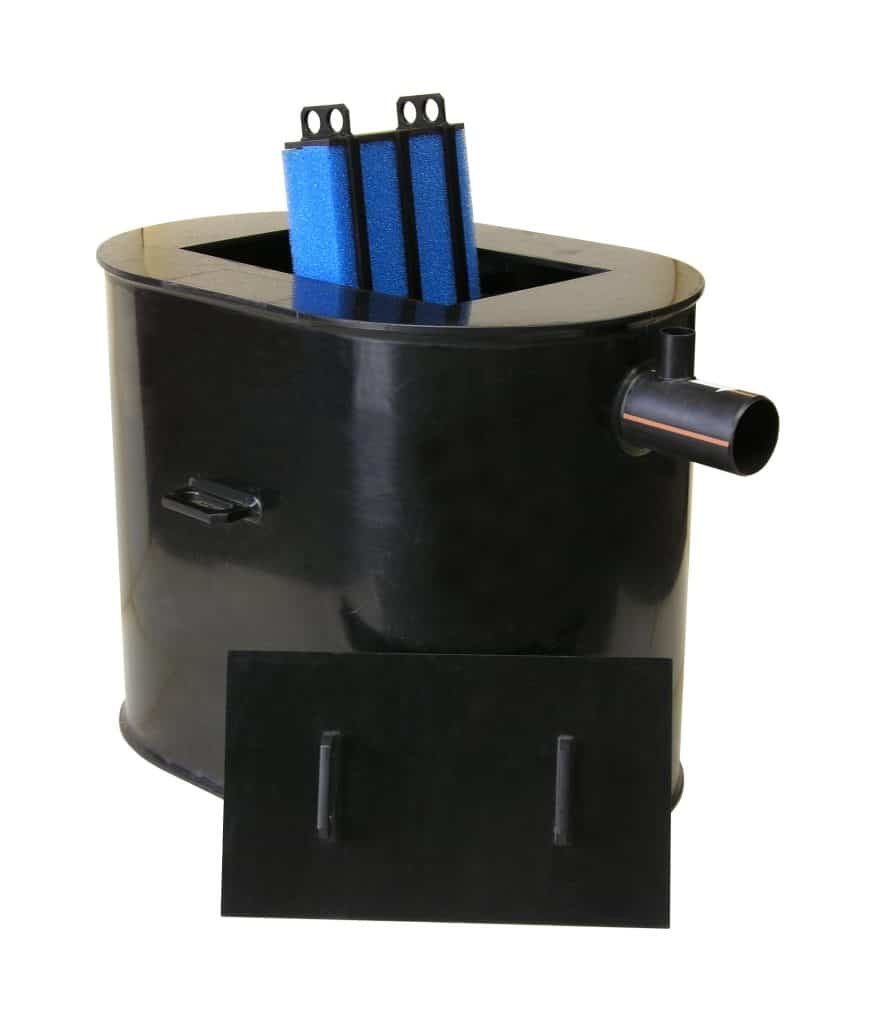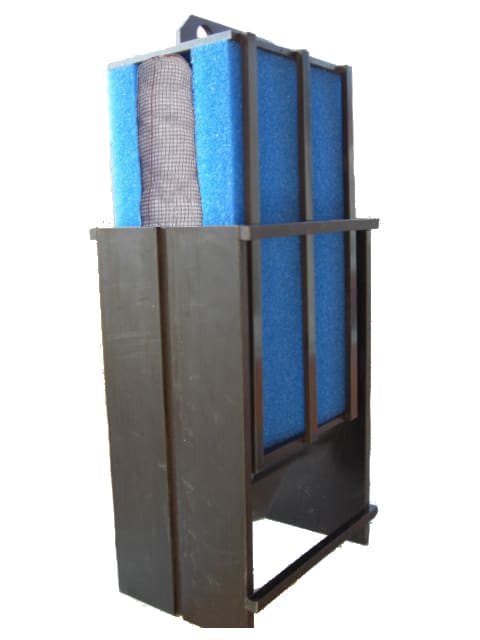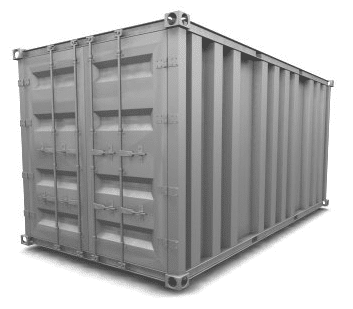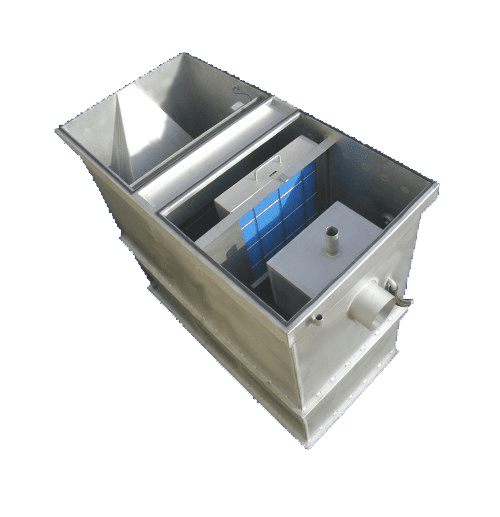Do you know about the silent guardians protecting Washington DC’s waterways? District of Columbia Above Ground OWS (OWS) are key to the city’s wastewater management. They work hard to keep our environment clean.
In Washington DC, the fight against water pollution is ongoing. Freytech Inc. Oil Water Separators lead the charge, safeguarding our water. They are vital to the city’s sewage system, stopping oil and other pollutants from getting into our water.
The District Department of Energy & Environment (DOEE) manages these important systems. They make sure the OWS are up to standard, efficient, and protect the environment.
Key Takeaways
- Above Ground OWS are vital for DC’s wastewater management
- These systems prevent oil and hydrocarbon contamination
- DOEE regulates OWS installation and maintenance
- OWS are crucial for protecting DC’s water resources
- Advanced technology enhances separation efficiency
Introduction to Above Ground Oil Water Separators in DC
Washington DC has special challenges in handling its wastewater. The city’s treatment facilities are key to keeping our water clean. Above ground oil water separators (OWS) are essential in this fight.
What Are OWS Systems?
OWS systems take oil and grease out of wastewater before it goes into the DC sewage system. They use gravity to separate oils from water. This keeps our rivers and streams safe from pollution.
Urban Importance
In a busy city like DC, OWS systems are crucial. They help places like restaurants and auto shops follow environmental laws. The Capital area sewerage management depends on these separators to ease the load on treatment plants.
DC’s OWS Regulations
The District Department of Energy and Environment (DOEE) manages OWS in DC. They have strict rules for putting them in and keeping them up. Businesses need permits and must follow federal and local guidelines. The GreenWrench program helps auto shops with OWS, making sure our water stays clean for everyone in DC.
Benefits of Above Ground OWS Systems
Above ground oil water separators (OWS) bring big advantages to the Metropolitan area sewer system. They are easy to set up, keep up, and check, perfect for cities like Washington DC. Their design makes fixing and cleaning them quick, keeping them working well.
It’s vital to keep oil and water apart to protect DC’s underground utilities. Above ground OWS units do this job well, taking out oil and other pollutants from wastewater. This keeps the water clean and protects the environment.
Washington DC has a high water table and complex underground setup. Above ground OWS systems are great for these conditions. They don’t need deep digging, which saves time and money and avoids harming existing utilities.
Following environmental laws is another big plus. Above ground OWS units meet tough local and federal rules. This lets businesses and places in DC follow the law and keep our water safe.
District of Columbia Above Ground OWS Regulations
The District of Columbia has strict rules for above ground Oil Water Separators. These rules make sure they are installed, maintained, and meet environmental standards. It’s important for businesses in DC to know these rules.
DOEE Requirements
The Department of Energy and Environment (DOEE) is in charge of Oil Water Separators in DC. They have rules for how to install and keep them up. Businesses must follow these rules to avoid polluting water. They also need to pass regular inspections to stay in compliance.
Environmental Standards
DC’s rules match federal EPA standards. They are very strict. Oil Water Separators must not let pollutants into the water. This keeps the water clean. If businesses don’t follow these rules, they could face fines.
Permit Process
To put in above ground OWS in DC, you need DOEE approval. You must send in detailed plans first. The process includes a review and site check. After approval, you must keep up with maintenance and send in reports.
Following these rules helps businesses in DC meet environmental goals. It also keeps the local waterways safe and supports sustainability in the nation’s capital.
Key Features of Modern Above Ground OWS
Modern Above Ground Oil Water Separators have changed how cities like Washington DC handle wastewater. They use the latest technology to meet tough environmental rules and make water cleaner.
These separators are crucial in storm water systems. They process runoff to meet the US EPA’s Clean Water Act standards. With effective oily water treatment, facilities protect the environment and dodge big fines.
Enhanced Coalescing Technology
Now, DC’s overground wastewater systems use advanced coalescing plates. These plates help oil droplets merge and separate from water. This makes the Above Ground Oil Water Separators work much better.
Separation Efficiency and Discharge Limits
Top-notch Above Ground Oil Water Separators can get water clean to 5 parts per million (PPM). This is way above the North American limit of 10 PPM. Some systems even get down to 0.1 PPM, making the water very clean.
Compatibility with Various Hydrocarbons
These modern separators can deal with many kinds of hydrocarbons. They work with motor oil, diesel, gasoline, and jet fuel. This makes them perfect for different needs across Washington DC’s infrastructure.
Implementation in DC’s Infrastructure
Above ground oil water separators are key in Washington DC’s sewage system. They are set up all over the city to handle wastewater well. Places like gas stations, auto repair shops, and industrial sites are where you’ll find them most.
DC’s complex underground utilities make above ground systems a wise choice. They’re simpler to put in and keep up than underground ones. This means repairs can be done fast with less trouble to the city.
These separators help District wastewater treatment facilities a lot. They catch oil and grease first, keeping it from getting to the main treatment plants. This step makes the whole water management system in DC work better.
Combining above ground separators with current facilities improves sewage management in DC. It lightens the load on main treatment plants and helps meet environmental rules. As DC grows, these systems will be more important in keeping our water safe.
Conclusion
Above Ground Oil Water Separators are key in the DC sewage system. They keep oil and water apart, protecting the environment and meeting strict rules. The District uses the latest OWS technology to manage sewage well and protect nature.
By using advanced separators, DC shows its commitment to handling wastewater responsibly. These new systems help keep the sewer system strong. They also protect the Potomac River and Chesapeake Bay.
As DC grows, keeping its water clean is more important than ever. By using top-notch OWS systems, the District leads in taking care of the environment. This ensures a cleaner, greener future for everyone living in or visiting the city.

